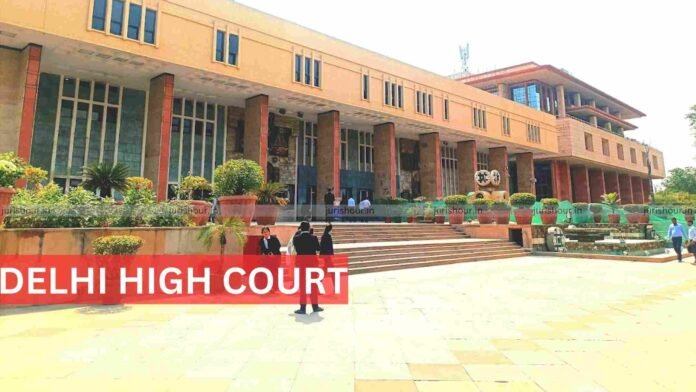The Delhi High Court has ruled that the retrospective abolition of the Income Tax Settlement Commission (ITSC)through the Finance Act, 2021, cannot invalidate applications filed before March 31, 2021. The Court held that such applications must be treated as “pending” and decided by the newly constituted Interim Board for Settlement.
The Division Bench of Justices V. Kameswar Rao and Vinod Kumar declared that the Finance Act’s retrospective cutoff date of February 1, 2021, was arbitrary and unconstitutional, as it took away vested rights of assessees who had legitimately filed applications before the law came into force on April 1, 2021.
The petitions before the Court challenged the validity of provisions in the Finance Act, 2021, which abolished the ITSC and transferred pending cases to the Interim Board. The assessees had filed applications under Section 245C of the Income Tax Act seeking to settle tax disputes following search and seizure proceedings.
Although the Finance Bill, 2021, was introduced on February 1, 2021, it did not become law until April 1, 2021. During this interregnum, the ITSC continued to function and even accepted applications pursuant to interim court orders.
The petitioners contended that their applications filed before April 1, 2021, were valid under the law as it stood then and that the government could not retrospectively extinguish their statutory right to settlement.
Senior Advocate Parag P. Tripathi argued that the Finance Act, 2021, by backdating the abolition of the ITSC to February 1, 2021, violated Articles 14 and 300A of the Constitution, as it deprived taxpayers of their vested right to approach the Commission.
He pointed out that several High Courts — Madras, Bombay, Gujarat, and Calcutta — had already ruled in similar matters, holding that the cutoff date must be read as March 31, 2021, and that applications filed prior to that date must be treated as valid. The Supreme Court had dismissed Revenue’s appeals, effectively affirming those precedents.
On the other hand, Senior Standing Counsel for the Income Tax Department, Mr. Sanjay Kumar, contended that the decision to discontinue the ITSC from February 1, 2021, was a policy matter within the legislative domain. The taxpayers did not possess a vested right to approach the ITSC and that the Finance Act validly replaced it with the Interim Board.
The Bench noted that the Finance Act, 2021, received presidential assent only on April 1, 2021, and therefore could not retrospectively bar applications filed before that date. The Court observed that the ITSC was functionally and legally operational until March 31, 2021, and that the retrospective cutoff date of February 1 was unsupported by rationale or public interest.
Citing the principle of “lex prospicit non respicit” (the law looks forward, not backward), the judges emphasized that fiscal laws should not operate retrospectively to alter rights or liabilities that had already crystallized.
The Court endorsed the reasoning of earlier High Court judgments such as Jain Metal Rolling Mills (Madras HC) and Sar Senapati Santaji Ghorpade Sugar Factory (Bombay HC), which had held that applications filed before March 31, 2021, remained valid and had to be adjudicated by the Interim Board.
The court held that the Applications filed before March 31, 2021, under Section 245C are valid “pending applications” within the meaning of Section 245A(eb). The Interim Board for Settlement is directed to consider and decide such applications in accordance with law. The Finance Act, 2021, insofar as it retrospectively abolished the ITSC from February 1, 2021, is arbitrary and violative of constitutional guarantees.
The Court reaffirmed that taxpayers cannot be prejudiced by retrospective legislative changes, especially when acting under interim judicial protection.
Case Details
Case Title: Megha Engineering And Infrastructure Ltd. Versus Income Tax Settlement Commission & Ors.
Case No.: W.P.(C) 3479/2021
Date: 06.10.2025
Counsel For Petitioner: Parag P. Tripathi, Sr. Adv. with Ms. Sanam Tripathi
Counsel For Respondent: Sanjay Kumar, SSC
Read More: Customs’s Seizure Of Luxury Cars Owned By Only Muslim Film Stars From South India Has Communal Angle

